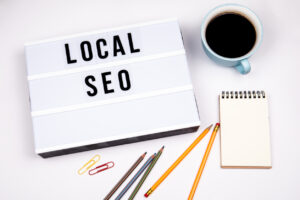We’ve all had that experience where we open a website with great anticipation only to devolve into a blind rage as 10 minutes have passed and only the header has loaded! It’s one of my pet peeves and I usually close the website after 1 minute max!
Did you know that Google feels the same way? It’s true! The debate on how important is page speed for SEO has been raging for years and in the article below I aim to give you the facts.
Google Loves Fast-Loading Pages
People who say that page speed loading times don’t matter are wrong. Period. They do and Google employees have stated this multiple times. It’s true for other search engines like Bing too, but Google is usually the one we want to rank on.
As you will see below, there are many benefits to fast page loading speeds including improved user experience, better crawling speeds, and fewer negative consequences.
If you are looking for a starting point in your SEO campaign, page loading speeds are a great choice as they can be fixed relatively easily and will yield great results.
Fast Pages Offer Multiple Benefits
So, how important is page speed for SEO? VERY. To demonstrate, I have listed the main benefits of fast-loading pages below.
Google explicitly states page loading speeds are a ranking factor
As I mentioned earlier, people working at Google who have insider knowledge and understand how their algorithms work for determining rankings have stated that page speed is very important. When the company you are trying to impress gives you advice like this, it’s best not to ignore it.
During any SEO consultation, you will be told the importance of page loading speeds and it’s a huge benefit that Google looks for this as a ranking factor. Obviously, we don’t know the weighting and how important it is overall, but we know it’s a factor that is reason enough to make your site load fast.
The user experience is greatly improved
I gave you a scenario in the opening paragraph and while I obviously exaggerated somewhat (come on, surely there can’t be pages that take 10 minutes to load!?!), the underlying point is true. Slow page loading speeds contribute to a poor user experience.
Users will get frustrated quickly when they are simply sitting there waiting for your pages to load. Also, even if some elements of the page load quickly such as the header and footer, if the important content doesn’t load quickly like product info then it still results in a poor user experience.
Slow speeds result in negative reactions
Building on the above benefit, slow loading speeds result in negative reactions too such as:
- Higher abandonment rates for shopping carts.
- Higher bounce rates for pages.
- An increase in competition.
- Lower rankings on Google.
Slow loading speeds directly affect your website traffic (which is another SEO factor), and ultimately your bottom line as you will be losing out on sales.
This could be from people simply getting bored and closing your site halfway through the checkout process, or even an increase in competition because customers are closing your slow-loading pages and checking out alternative companies.
Google relies on fast-loading pages
While Google has stated that it favors fast-loading pages, this isn’t just from a ranking perspective. Its also beneficial for them from an operational and productive standpoint.
Inefficient websites cause Google to use more bandwidth and resources to crawl and index pages. With the millions of pages and data they work with, it’s easy to see how slow page loading can be detrimental to their business.
It’s easier for search engine crawlers to navigate
Search engines like Google typically give each website a crawl budget. This is a specific amount of time and resources that the crawler bots have to index your pages. If your website is poorly optimized and page speeds are slow, the crawlers will waste valuable resources and could potentially miss out on sections of your website.
How to Improve Page Loading Speeds
You now know that page speed and SEO go hand in hand and you must make an effort to improve your page loading speeds. But how exactly do you do this? Below, I have listed some simple ways you can boost your page speeds:
- Use a reliable and fast hosting service.
- Make sure your website theme is optimized.
- Optimize all images of your web pages.
- Check for poorly-written HTML, CSS, and Scripting code.
- Disable any unused plugins or widgets.
It starts with your hosting service and I advise doing a little comparison work and checking customer reviews to see which hosting companies offer the fastest servers.
Next, look at your website theme if you are using an ecommerce platform like Shopify. It’s important to have a lightweight theme that uses perfectly written code. Image and video optimization is also imperative and you should disable any plugins or widgets that aren’t being used as they may still be part of the page loading request.
A question I get relating to this is how long does SEO take to show the results and in the case of page loading speeds the effect is quicker compared to keyword optimization for example.
Jump Into the Fast Lane and Optimize Your Pages for Speed
Even with fiber optic internet speeds and the development in computer and smartphone technology, page loading speeds are still an issue. Everyone would love it if websites loaded instantly, but we aren’t there yet, so it’s up to you to optimize your pages for speed to make Google and your customers happy.










